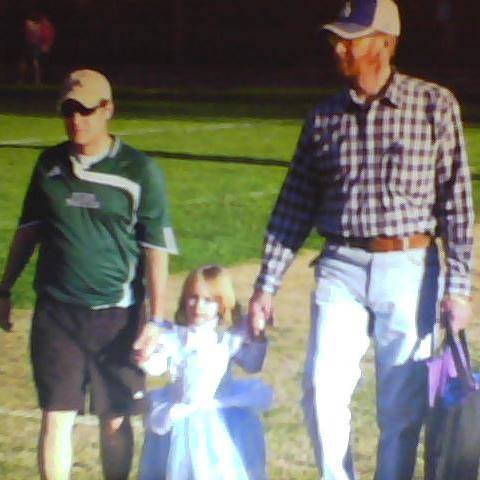RLL 37--Lessons from Science Camp
Happy Sunday, everyone! I hope you've had an amazing week filled with watching World Cup games and spending time with your family. Whether you have or not, I hope to encourage you a little bit this morning with three quick things I learned from Science Camp. On Tuesday and Thursday, I and some other teachers had the opportunity to travel a few hours south and help put on a STEM Science Camp, with the focus being on Marine Biology. Here are a few things I learned about leadership from science camp.
Bioluminescent Octopus
1) Kids are kids. The schools we went to this week are definitely some of the more rural and underfunded places that I've been. Having said that, the administration at each school and the students there were incredible: friendly, respectful, and (the students this time, not so much the admin) goofy. Kids are kids, regardless of what type of socioeconomic background they come from.
I was teaching about special adaptations of certain types of marine creatures (ones that glow in the dark, ones with specialized attack abilities, etc.), and we did that by first comparing different adaptations of sports balls, looking at size/shape/covering material/density of soccer, tennis, baseball, golf, football, and basketballs. Kids like to play games, and so to get to toss different balls around the classroom was a lot of fun for everyone. After that, they also understood the concepts of comparing/contrasting different adaptations for the various creatures.
Leafy Seadragon
2) Enthusiasm is key. Remember, these are 7th-12th grade students in a classroom in the middle of June. Not typically a recipe for anyone to have a great day. However, these students were engaged and attentive, especially when I showed enthusiasm for what we were doing. Again, we tossed a tennis ball, I juggled a soccer ball, I let a few of them spin the basketball on their finger, and then we did some more science work. But, as with any leadership venture, when I was enthusiastic, my students were enthusiastic. If I had come in and been dry and boring and monotonous, I can't imagine the students would have really had a great time either.
3) Relationships can begin with just a handshake and a question. First, let me say that I was encouraged by how the administrators at each school related to the students: they were encouraging, they were attentive, and they were genuinely concerned with student well-being. Second, that made me also want to form good, if brief, relationships with these students. As I wrote in my recent book Inverted Leadership, relationships begin to be formed with the first interaction. So for me that meant looking each child in the eye, shaking his/her hand, and then asking them to tell me their names and something important about themselves. Is it standard, bordering on summer-camp/cheesy? Certainly. But it also is genuine, if you look them in the eye and are interested in their answers. And this started us off on the right foot, setting us up for a great day.
Ok, there's three quick thoughts on what I learned at Science Camp. I hope you're able to apply some of these things in your world, whether it's at work, at a VBS this week, or elsewhere! Also, if you haven't yet gotten a copy, be sure to go by Amazon and pick up your copy of Inverted Leadership today! If you have gotten yours, I'd be grateful if you'd go to amazon and leave a review of the book. Thanks!






